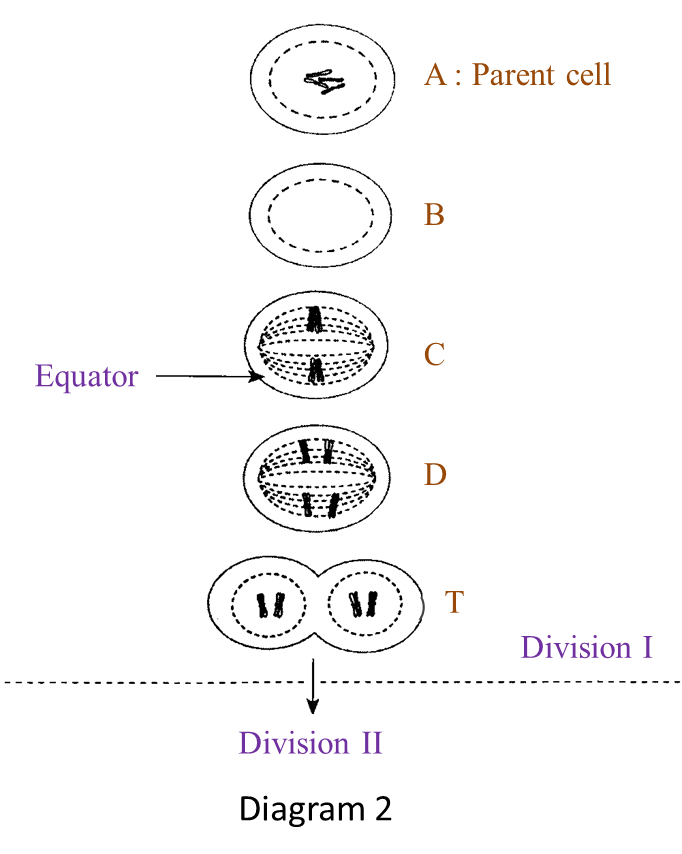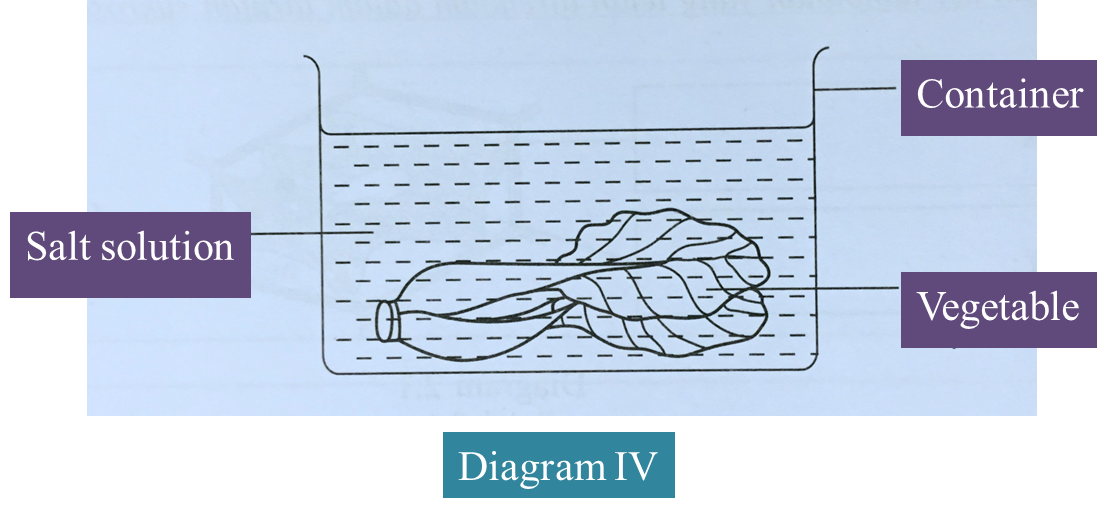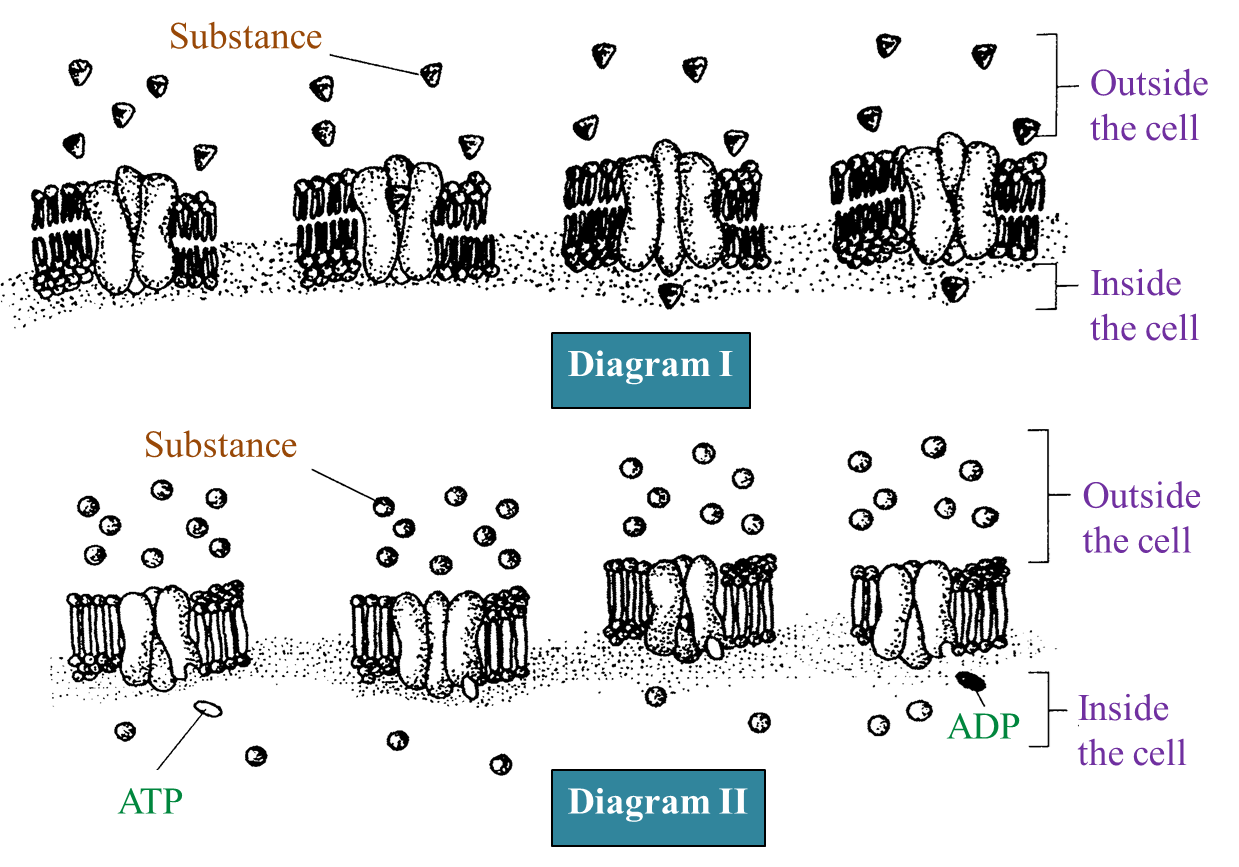Question 1:
Diagram 1 shows the stages of cell division.

(a)(i) Name the type of cell division as shown in Diagram 1. [1 mark]
(ii) Give reason to your answer in (a)(i). [1 mark]
(b) Arrange the stages of cell division P, Q, R and S in a correct sequence in the boxes given. [1 mark]

(c)(i) Name structure W. [1 mark]
(ii) How many structures W in each cell at stage P? [1 mark]
(d) What happens to structure W if exposed to radioactive radiation? [1 mark]
Answer:
(a)(i) Mitosis
(a)(ii) The daughter cells contain the same number of chromosomes as the parent cell.
(b)

(c)(i) Chromosome
(c)(ii) 46
(d) Mutation may occur
Diagram 1 shows the stages of cell division.

(a)(i) Name the type of cell division as shown in Diagram 1. [1 mark]
(ii) Give reason to your answer in (a)(i). [1 mark]
(b) Arrange the stages of cell division P, Q, R and S in a correct sequence in the boxes given. [1 mark]

(c)(i) Name structure W. [1 mark]
(ii) How many structures W in each cell at stage P? [1 mark]
(d) What happens to structure W if exposed to radioactive radiation? [1 mark]
Answer:
(a)(i) Mitosis
(a)(ii) The daughter cells contain the same number of chromosomes as the parent cell.
(b)

(c)(i) Chromosome
(c)(ii) 46
(d) Mutation may occur
Question 2:
Diagram 2 shows a process of cell division. Chromosomes at stage B are not shown.

(a)(i) Name the process shown in Diagram 2. [1 mark]
(ii) State the importance of the process in (a)(i). [1 mark]
(b)(i) During stage C, the chromosomes line up on the equator.
What happens to the chromosomes during this stage? [1 mark]
(ii) What is the effect of the process in (b)(i) on the offspring? [1 mark]
(c) In Diagram 2, draw the chromosome at stage B. [1 mark]
(d) How many daughter cells are produced at the end of Division II in Diagram 1? [1 mark]
Answer:
(a)(i) Meiosis
(a)(ii) Production of gametes
(b)(i) Crossing-over
(b)(ii) Variations
(c)

(d) 4 daughter cells are produced
Diagram 2 shows a process of cell division. Chromosomes at stage B are not shown.

(a)(i) Name the process shown in Diagram 2. [1 mark]
(ii) State the importance of the process in (a)(i). [1 mark]
(b)(i) During stage C, the chromosomes line up on the equator.
What happens to the chromosomes during this stage? [1 mark]
(ii) What is the effect of the process in (b)(i) on the offspring? [1 mark]
(c) In Diagram 2, draw the chromosome at stage B. [1 mark]
(d) How many daughter cells are produced at the end of Division II in Diagram 1? [1 mark]
Answer:
(a)(i) Meiosis
(a)(ii) Production of gametes
(b)(i) Crossing-over
(b)(ii) Variations
(c)

(d) 4 daughter cells are produced
 (a) Name the processes involved in the movement of P and Q.
(a) Name the processes involved in the movement of P and Q.











